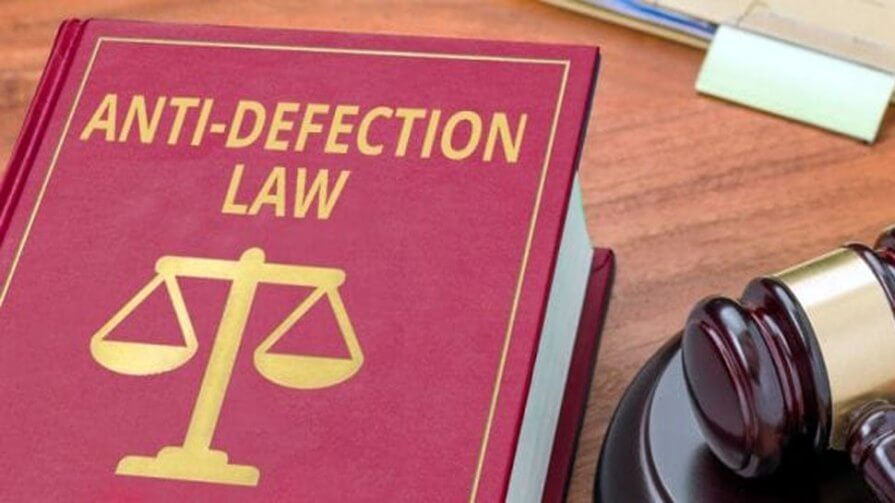Maharashtra’s anti-defection statute has again come to the fore in the recent political upheavals in the state. There are a number of issues to be resolved. While a no-confidence vote is being considered, may the Speaker (or in his absence, the Deputy Speaker) rule on a petition for disqualification of the current Speaker? Is it possible for the Supreme Court to examine the judgement before it is made? If two-thirds of the party’s MLAs choose to break away from the party’s leadership, would they have to unite with another party to avoid being disqualified from the election? As a first step, we must address the core source of these problems and abolish the anti-defection statute.
In a nutshell, the anti-defection rule, also known as the Tenth Schedule of the Constitution, prohibits MPs and MLAs from serving if they vote against the party whip on any topic. If two-thirds of the party’s MPs or MLAs elect to unite with another party, this provision does not apply. The Speaker has the authority to rule on whether or not a member is disqualified.
Initially, this seems like a sensible idea. When elected on the platform of a political party, a lawmaker is supposed to represent the views of that party. Political instability may also be caused by monetary incentives for defections. In addition, they violate the will of the people. Despite the fact that this is an incorrect representation of parliamentary democracy’s essential structure, In contrast to a presidential system, the administration is accountable to Parliament on a daily basis, as Ambedkar noted while proposing the draught Constitution. Higher accountability comes at the expense of stability in this situation. This idea conflicts with the anti-defection statute.

An MP’s job must be clarified. There are two main ways of thinking about this. According to the trustee model, it is the responsibility of the representative to make the best decision for the people they serve. To put it another way, the MP must weigh the many policy possibilities before making a decision. The delegate model, on the other hand, says that the representative is basically the voice of the constituents and should represent them in the House of Commons. As a result of the anti-defection statute, an MP is effectively become a party delegate. Imagine that a member of Parliament feels strongly about a bill that she believes is out of line with the wishes of a significant section of her constituency. Assume that the party of the MP also supports the bill. The MP is unable to make decisions on her own and must thus abide by the views of her constituents. All other factors will be subordinated to the desires of the gathering.
The heart of Indian democracy is therefore threatened by this legislation. As a result of its accountability to Parliament, the government has legitimacy. MPs, in turn, answer to the people they represent. However, MPs (particularly from the ruling party) can no longer challenge its activities because of this statute. All decisions are made by the government since it has a majority in the lower house, hence there are no checks and balances. Although parliament is supposed to be an institution of accountability, it has instead become a rubber-stamp for the executive branch. Representatives’ capacity to answer to the people they serve is likewise undermined. Electoral democracy ensures that legislators are held to account by holding elections on a regular basis and holding constituents accountable for their legislative actions. In the United States, candidates are often grilled on their voting history. Because they had no option but to vote as the party dictated, Indian parliamentarians had an easy out. As a result, there is less of an incentive to look into policy and legislative alternatives. It doesn’t make any sense to put in the time and effort to learn about complicated issues if they’ve already been settled.

Political parties are also given more influence under the legislation. Leaders of the party have the power to prescribe conditions to all its members. The situation is exacerbated by the absence of internal party democracy in most Indian parties Politicians whose ambitions are dashed because of this legislation are more likely to start their own parties, according to this theory.
The legislation doesn’t function in a pinch, as Maharashtra’s experience (and that of other states like Madhya Pradesh, Karnataka, Manipur, and Arunachal Pradesh) indicate. If legislators are suitably compensated, they will discover loopholes.
To deal with defections, we need a political solution rather than a legal one. Political parties are large groups of individuals who have a same set of beliefs. They need to be able to draw in new members and keep the ones they already have. When a political party is controlled by a single family, an aspiring non-family member has little option but to leave. They also need to develop internal mechanisms for members to ascend to the top ranks. Anti-defection legislation should be abolished, not strengthened.

